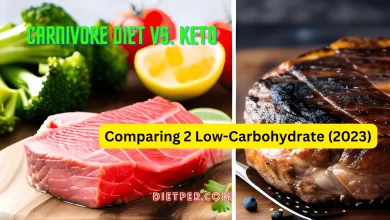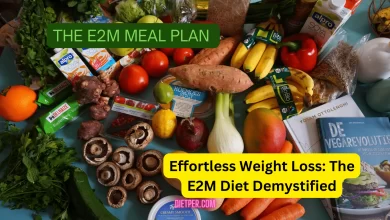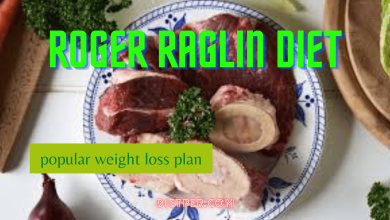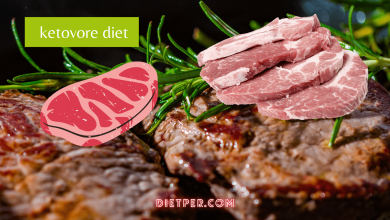Vegetarian Diet : 7-Day Meal Plan and Delicious Recipes
"Unlocking the Health Benefits of Vegetarian Diets: Your Comprehensive Guide to Foods, 7-Day Meal Plan, and Delicious Recipes."
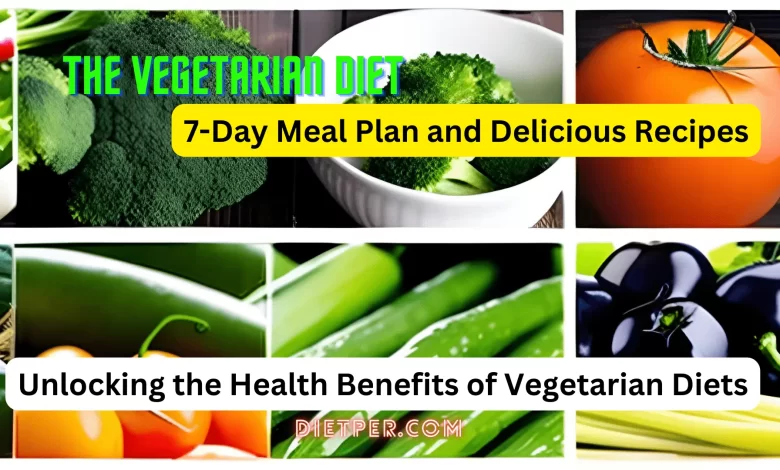
Vegetarian Diets: In today’s fast-paced world, the quest for a healthy lifestyle can often feel daunting. Many of us wish to make positive changes in our diet, not only for our well-being but also to impact the environment and animals positively. The thought of adopting a vegetarian diet might intrigue us, but it comes with its own set of challenges. How do we ensure we’re getting all the essential nutrients? How do we make delicious and satisfying meals that cater to our dietary preferences?
The decision to embrace a vegetarian lifestyle is commendable, but we understand that it can be overwhelming at first. Planning balanced meals, finding creative recipes, and understanding which nutrients are crucial for your well-being can feel like an uphill battle. Fears of nutrient deficiencies might make you question whether a vegetarian diet is sustainable for you in the long run.
But fear not because a solution exists!
What is a vegetarian diet?
A vegetarian diet is a dietary pattern that excludes meat, poultry, and seafood consumption. However, it includes a wide variety of plant-based foods such as fruits, vegetables, nuts, whole grains, legumes, and seeds. People choose to follow a vegetarian diet for various reasons, including ethical, environmental, and health concerns.
Types of vegetarian diets
Follow a vegetarian diet; there are various options. Understanding the different types of vegetarian diets can help you make an informed decision about which one aligns with your beliefs, preferences, and health goals.
Lacto-ovo vegetarian: This is a common type of vegetarian diet. Individuals following this diet avoid meat, fish, and poultry but consume dairy products and eggs. This diet provides a wide range of nutrients, including protein, calcium, and vitamin B12, commonly found in animal-based foods.
Lacto-vegetarian: Similar to the Lacto-ovo vegetarian diet, individuals following a lacto-vegetarian diet exclude meat, fish, and poultry but still consume dairy products. This diet can provide essential nutrients, including calcium and vitamin D, which are vital for bone health.
Ovo-vegetarian: Ovo-vegetarians exclude meat, fish, poultry, and dairy products from their diet but still include eggs. This diet can be a good source of protein and other essential nutrients in eggs, such as vitamin B12 and choline.
Vegan: Vegans follow a plant-based diet, excluding all animal products. This includes meat, fish, poultry, dairy products, eggs, and even honey. Vegans rely on plant-based sources for their nutrients, such as legumes, whole grains, fruits, vegetables, nuts, and seeds. Vegans must ensure they obtain adequate nutrients like vitamin B12, iron, and omega-3 fatty acids, commonly found in animal-based foods.
Pescatarian: Although not strictly a vegetarian diet, pescatarians mainly consume plant-based foods but also include fish and seafood in their diet. This diet can provide the benefits of plant-based nutrition while still incorporating omega-3 fatty acids and other nutrients found in fish. Choosing the right type of vegetarian diet depends on your preferences, nutritional needs, and ethical considerations.
Health benefits of a vegetarian diet
Health benefits of a vegetarian diet: Choosing a vegetarian diet isn’t just a personal preference; it can significantly impact your overall health. Not only does a vegetarian diet offer various range of delicious and nutritious food options, but it also delivers numerous health blessings that can improve your well-being.
Lower risk of chronic diseases
Studies have shown that those following a vegetarian diet have a lower risk of acquiring chronic diseases like heart disease, high blood pressure (HBP), diabetes, and certain types of cancer. This is primarily due to the abundance of fruits, vegetables, whole grains, and legumes typically consumed in a vegetarian diet. These plant-based foods are rich in vital nutrients, fibre, and antioxidants, crucial in preventing and managing chronic diseases.
Improved weight management
A vegetarian diet is often associated with a healthier body weight and a lower body mass index (BMI). Plant-based foods tend to be lower in calories and saturated fats, making them excellent choices for weight management. Additionally, the high fibre content of vegetarian meals promotes feelings of fullness and satiety, reducing overeating and aiding in weight control.
Enhanced digestion
Vegetarian diets are naturally high in fibre, supporting a healthy digestive system. Adequate fibre intake promotes regular bowel movements, prevents constipation, and supports diverse and beneficial gut microbiota. A healthy digestive system is crucial for nutrient absorption, waste elimination, and overall gut health.
Reduced risk of certain conditions
Vegetarian diets have been associated with a reduced risk of conditions such as gallstones, kidney stones, and diverticular disease. These conditions are often linked to diets high in animal products and low in fibre. By focusing on plant-based foods, vegetarians reduce their intake of such substances, minimizing the risk of developing these conditions.
Improved nutrient intake
Contrary to common misconceptions, a well-planned vegetarian diet can deliver all the nutrients for optimal health. Plant-based diets can contain essential vitamins and minerals, including vitamins C, E, folate, magnesium, and potassium.
Famous Blogs For Weight Loss:
- Delicious and Nutritious: 14 Healthy Meals for Weight Loss
- 10 Healthy Snacks for Weight Loss : Delicious and Nutritious
- Healthy weight loss: Tips and tricks from experts for 2023
Effective Vegetarian Diet For Weight Loss
Evidence-Based Insight Many people turn to vegetarian diets for various reasons, such as ethical concerns, environmental sustainability, or simply a desire to improve their overall health. However, one benefit that often goes unnoticed is the potential for effective weight loss.
Research and studies have consistently shown that a well-planned vegetarian diet can lead to weight loss and improved body composition. These foods are typically low in calorie density but rich in fibre, vitamins, minerals, and antioxidants, making them a perfect choice for weight management.
If you are seeking an effective weight loss strategy, consider the benefits of switching to a vegetarian diet. Multiple studies have demonstrated its potential for successful weight management.
- According to a review of 12 studies, individuals who follow a vegetarian diet experienced an average weight loss of 4.5 pounds (2 kilograms) more than non-vegetarians over 18 weeks.
- Furthermore, a 6-month study involving 74 people with type 2 diabetes revealed that vegetarian diets were nearly twice as effective as low-calorie diets in reducing body weight.
- Moreover, a 2009 study of nearly 61,000 adults indicated that vegetarians generally exhibit a lower body mass index (BMI) than omnivores. BMI is a crucial measure of body fat based on height and weight.
While the results are promising, further research is necessary to pinpoint the specific aspects of the vegetarian diet or lifestyle responsible for these positive associations.
Reducing Cancer Risk with a Vegetarian Diet
Promising Insights A growing body of research suggests that a vegetarian diet can significantly reduce the risk of certain types of cancer. While diet alone cannot guarantee cancer prevention, incorporating more plant-based foods into your meals can provide valuable health benefits.
Vegetarian diets, which emphasize plant-based foods such as fruits, vegetables, whole grains, legumes, and nuts, are rich in essential nutrients, antioxidants, and phytochemicals. These components have been extensively studied and have shown the potential to protect against various types of cancer.
One of the key factors contributing to the cancer-fighting properties of a vegetarian diet is its high fibre content. Fibre aids digestion and helps maintain a healthy weight, which is vital for reducing the risk of obesity-related cancers, including breast, colon, and pancreatic cancer.
Another compelling aspect of a vegetarian diet is its lower intake of red and processed meats. High consumption of these meats has been linked to an increased risk of colorectal, stomach, and prostate cancers. By swapping out meat for plant-based protein sources like beans, lentils, tofu, and tempeh, individuals can lower their exposure to potentially harmful compounds in the heart.
Additionally, abundant antioxidants in fruits and vegetables provide another protective layer against cancer. These powerful compounds support to neutralize harmful free radicals in the body, which can elsewhere lead to DNA damage as well as an increased risk of cancer development.
Furthermore, adopting a vegetarian diet can be beneficial in reducing inflammation. Chronic inflammation has been defined as a significant contributing factor to cancer development.
Stabilizing Blood Sugar with a Vegetarian Diet
Stabilizing blood sugar levels is crucial for maintaining whole health and preventing chronic conditions such as diabetes. While there are a variety of approaches to managing blood sugar, adopting a vegetarian diet has been shown to offer evidence-based benefits.
Numerous studies suggest that incorporating a vegetarian diet into your lifestyle may positively impact maintaining healthy blood sugar levels.
For example, a comprehensive review conducted in 2014, encompassing six studies, demonstrated a significant improvement in blood sugar control among people with type 2 diabetes who embraced a vegetarian diet.
Moreover, vegetarian diets have shown the potential to prevent diabetes by offering long-term stabilization of blood sugar levels. A notable study involving 2,918 participants revealed that transitioning from a non-vegetarian diet to a vegetarian one correlated with a remarkable 53% reduction in the risk of diabetes over an average period of 5 years.
However, it is essential to note that simply adopting a vegetarian diet does not guarantee blood sugar stabilization. Maintaining a balanced as well as varied diet is important, ensuring adequate intake of nutrients such as protein, vitamins, and minerals.
Vegetarian diets reduce heart disease risk.
Vegetarian diets significant health benefit of adopting a vegetarian diet is the reduction in the risk of heart disease. Numerous studies have provided substantial evidence that vegetarian diets can effectively lower the risk of heart-related ailments, making them an excellent choice for those seeking to safeguard their cardiovascular health.
Lower LDL cholesterol levels: A key factor contributing to heart disease is the accumulation of low-density lipoprotein (LDL) cholesterol in the arteries. Vegetarian diets, rich in fibre, plant-based proteins, and healthy fats, have been shown to lower LDL cholesterol levels, thus reducing the risk of plaque formation and arterial blockage.
Reduced blood pressure: High blood pressure is a significant risk factor for heart disease. Vegetarian diets, particularly those rich in fruits, vegetables, whole grains, and legumes, are naturally low in sodium and high in potassium, which can help regulate blood pressure levels and maintain cardiovascular health.
Enhanced antioxidant intake: Antioxidants play a crucial role in preventing oxidative stress and cellular damage, which can contribute to heart disease. Vegetarian diets, abundant in fruits, vegetables, and whole grains, provide a wide range of antioxidants that help protect the heart from harmful free radicals.
Improved blood sugar control: Vegetarian diets, especially those focused on whole foods and plant-based proteins, have been linked to better blood sugar control as well as a reduced risk of type 2 diabetes. Since diabetes is a notable risk factor for heart disease, the preventative effects of vegetarian diets on diabetes indirectly contribute to lowering heart disease risk.
Healthier weight management: Obesity and excess weight are known risk factors for heart disease. Studies have consistently shown that individuals following vegetarian diets tend to have lower body mass indexes (BMIs) and reduced obesity rates.
What are the foods to eat?
When following a vegetarian diet, it’s important to ensure you get all the nutrients your body needs. You can include various delicious and nutritious foods in your vegetarian diet. Here are some key foods to consider:
1. Fruits and vegetables: Load up on a colourful array of fruits and vegetables, as these are rich in essential vitamins, minerals, and antioxidants. The options are endless, from leafy greens like spinach and kale to vibrant fruits like berries and citrus.
2. Whole grains: Incorporate whole grains like quinoa, brown rice, oats, and whole wheat bread into your meals. These provide complex carbohydrates, fibre, and important nutrients such as B vitamins and iron.
3. Legumes: Beans, lentils, and chickpeas are excellent sources of plant-based protein, fibre, and various minerals. They can be used in soups, stews, salads, or even delicious dips like hummus.
4. Nuts and seeds: Include a variety of nuts and seeds in your diet for healthy fats, protein, and additional nutrients. Almonds, walnuts, chia seeds, and flaxseeds are great options. They can be sprinkled on salads, added to smoothies, or enjoyed as a snack.
5. Plant-based protein sources: Incorporate plant-based protein alternatives such as tofu, tempeh, and seitan into your meals. These versatile options can be grilled, baked, or stir-fried to add a satisfying protein boost.
6. Dairy substitutes: If you include dairy in your vegetarian diet, opt for alternatives like almond milk, soy milk, or coconut milk. These provide similar nutritional benefits without animal-derived ingredients.
7. Healthy fats: Include sources of healthy fats like avocados, olive oil, and coconut oil in your meals. These fats are important for brain health, hormone production, and overall well-being.
What are the foods to avoid?
While vegetarianism can provide numerous health benefits, it also requires careful consideration of food choices to meet the body’s nutritional needs. Here are some foods to avoid when following a vegetarian diet:
Meat and Poultry: One of the key aspects of a vegetarian diet is eliminating meat and poultry. This includes beef, pork, chicken, turkey, and other animal flesh.
Seafood: Seafood, such as fish, shellfish, and other aquatic animals, is also off-limits in a vegetarian diet. However, some vegetarians may include certain types of seafood, like fish, in their diet and are referred to as pescatarians.
Gelatin: Gelatin is derived from animal sources and is commonly found in various food products such as jellies, marshmallows, and gummy candies. It is important to read labels carefully and ensure that gelatin is not used in food items.
Animal Based vegetarian diet
- Animal-Based Broths: Traditional broths, such as chicken or beef broth, are derived from animal sources and should be avoided in a vegetarian diet. Opt for vegetable broth or other plant-based alternatives instead.
- Animal-Based Additives: Some food products contain additives derived from animals, such as gelatin, rennet (used in cheese-making), and cochineal extract (red food colouring made from insects). Be mindful of these ingredients and choose products that use vegetarian alternatives.
- Animal-Based Fats: Animal fats, such as lard and tallow, are unsuitable for a vegetarian diet. Instead, use plant-based oils like olive, coconut, or avocado oil for cooking and baking.
7-day Meal Plans for a Vegetarian Diet
Are you considering trying a vegetarian diet but need help figuring out where to start? Look no further! We have put together a 7-day sample meal plan to help you kickstart your vegetarian journey and ensure you get all the necessary nutrients.
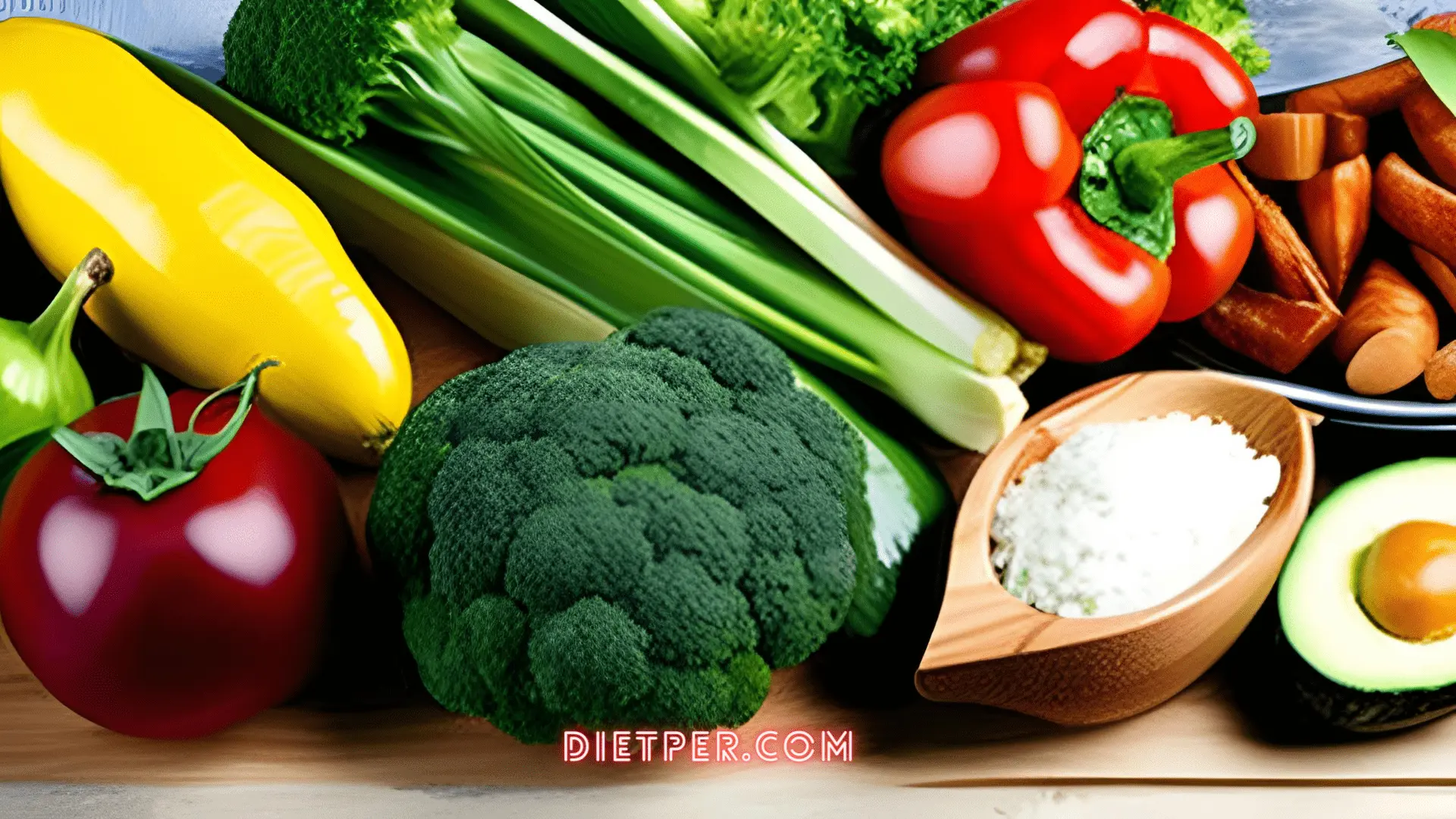
Day 1
- Breakfast: Start your day with a delicious avocado toast topped with sliced tomatoes and a sprinkle of feta cheese.
- Lunch: Enjoy a fresh and vibrant Greek salad with cucumbers, cherry tomatoes, olives, and feta cheese. Serve it with a side of whole wheat pita bread.
- Dinner: Indulge in a hearty vegetable stir-fry made with colourful bell peppers, broccoli, snap peas, and tofu, seasoned with soy sauce and ginger. Serve it over a bed of steamed brown rice.
Day 2
- Breakfast: Fuel up with a protein-packed smoothie made with almond milk, spinach, banana, and a scoop of peanut butter.
- Lunch: Dig into a flavorful chickpea curry served with basmati rice and naan bread for a satisfying midday meal.
- Dinner: Delight your taste buds with a comforting bowl of lentil soup packed with vegetables like carrots, celery, and kale. Serve it with a side of whole-grain bread.
Day 3
- Breakfast: Enjoy a classic bowl of oatmeal topped with fresh berries, sliced almonds, and a drizzle of honey.
- Lunch: Keep it light with a refreshing caprese salad made with ripe tomatoes, mozzarella cheese, and basil leaves, drizzled with balsamic vinegar and olive oil.
- Dinner: Dive into a mouthwatering plate of vegetable lasagna loaded with layers of zucchini, spinach, mushrooms, and ricotta cheese.
Day 4
- Breakfast: Whip up a delicious spinach and mushroom omelette with whole-grain toast.
- Lunch: Savor a satisfying chickpea and vegetable wrap filled with crisp lettuce, sliced cucumbers, cherry tomatoes, and a creamy hummus spread.
- Dinner: Treat yourself to a flavorful black bean and sweet potato chilli garnished with fresh cilantro and a dollop of Greek yogurt.
Day 5
- Breakfast: Enjoy a protein-rich bowl of Greek yogurt topped with mixed nuts, seeds, and honey.
- Lunch: Delight in a Mediterranean-inspired quinoa salad loaded with cherry tomatoes, cucumbers, feta cheese, and Kalamata olives.
- Dinner: Indulge in a comforting plate of mushroom and spinach stuffed pasta shells baked in a rich marinara sauce and topped with melted cheese.
Day 6
- Breakfast: Start your day with a stack of fluffy whole-grain pancakes topped with sliced bananas and maple syrup.
- Lunch: Enjoy a hearty vegetable and lentil curry served with fragrant basmati rice and garlic naan bread.
- Dinner: Treat yourself to a delicious sweet potato and black bean burger served on a whole wheat bun with all your favourite fixings.
Day 7
- Breakfast: Fuel up with a colourful smoothie bowl made with frozen mixed berries, spinach, almond milk, and a sprinkle of granola.
- Lunch: Dig into a satisfying grilled vegetable sandwich loaded with zucchini, eggplant, bell peppers, and melted cheese on whole-grain bread.
- Dinner: Indulge in a flavorful Mediterranean pasta dish with cherry tomatoes, olives, artichoke hearts, and a sprinkle of feta cheese.
Vegetarian diet recipes
If you’re considering adopting a vegetarian diet or incorporating more plant-based meals into your routine, you’ve come to the right place. In this section, we will share some delectable vegetarian diet recipes that are nutritious and bursting with flavours.
1. Quinoa and Black Bean Salad: This vibrant and protein-packed salad combines fluffy, hearty black beans, colourful vegetables, and a zesty dressing. It’s a satisfying meal on its own or can be served as a side dish.
2. Lentil Curry: A comforting and aromatic lentil curry is a staple in many vegetarian households. Packed with plant-based protein and fibre, this dish features cooked lentils simmered in a fragrant blend of spices, tomatoes, and coconut milk. Serve it with steamed rice or warm naan bread for a complete meal.
3. Caprese Stuffed Portobello Mushrooms: For a meaty and satisfying meatless main course, try these caprese-stuffed Portobello mushrooms. Juicy and grilled portobello mushrooms are filled with a mouthwatering mixture of fresh tomatoes, creamy mozzarella cheese, and fragrant basil leaves. Baked until the cheese melts, these mushrooms make a delicious and elegant dish.
4. Chickpea and Vegetable Stir-Fry: Stir-fries are a quick and versatile way to incorporate various colourful vegetables into your meals. This chickpea and vegetable stir-fry features tender-crisp veggies, protein-rich chickpeas, and a flavorful sauce. Serve it over steamed brown rice or quinoa bed for a wholesome and satisfying dinner.
5. Spinach and Feta Stuffed Sweet Potatoes: Looking for a hearty yet healthy vegetarian meal? Look no further than these spinach and feta stuffed sweet potatoes. Baked sweet potatoes are filled with a delicious mixture of sautéed spinach, creamy feta cheese, and aromatic spices. It’s a balanced and nourishing meal that will leave you feeling satisfied.
Healthy vegetarian diet recipes Indian
Healthy Indian vegetarian diet recipes are a delicious and nutritious way to enjoy flavorful plant-based meals. Here are some healthy Indian vegetarian recipes:
- Dal (Lentil) Soup: A comforting and protein-rich soup made with various lentils, spices, and vegetables.
- Vegetable Biryani: A fragrant and flavorful rice dish cooked with various vegetables and aromatic spices.
- Chana Masala: Chickpeas cooked in a spicy tomato-based sauce packed with protein and flavours.
- Palak Paneer: Spinach and cottage cheese are cooked together in creamy tomato gravy, a rich source of iron and calcium.
- Vegetable Curry: A medley of colourful vegetables simmered in a flavorful curry sauce.
- Mung Bean Salad: A refreshing and healthy salad with sprouted mung beans, vegetables, and tangy spices.
- Baingan Bharta: Roasted eggplant mashed and cooked with onions, tomatoes, and spices.
- Cauliflower Rice Pilaf: A low-carb alternative to rice, made by grating cauliflower and cooking it with herbs and spices.
- Poha: Flattened rice cooked with onions, peas, and Indian spices, a quick and light breakfast option.
- Dhokla: A steamed savoury cake made from fermented chickpea flour, a nutritious and protein-packed snack.
These recipes showcase the diverse and nutritious options available in Indian cuisine for those following a vegetarian diet. Adjust the spices and ingredients according to your taste preferences and dietary needs.
FAQS
What foods to eat on a vegetarian diet?
On a vegetarian diet, you can enjoy a wide variety of plant-based foods such as fruits, vegetables, grains, legumes, nuts, seeds, dairy (if lacto-vegetarian), and plant-based protein sources like tofu and tempeh.
What are the benefits of a vegetarian diet?
A vegetarian diet can offer numerous benefits, including reduced risk of certain chronic diseases, improved weight management, better digestion, lower environmental impact, and increased intake of essential nutrients from plant-based sources.
How do I prepare for a vegetarian diet?
To prepare for a vegetarian diet, start by educating yourself about plant-based nutrition, plan balanced meals, gradually reduce animal-based foods, and explore new vegetarian recipes. Consulting with a registered dietitian can also provide personalized guidance.
Is a vegetarian diet very good for health?
Yes, a well-planned vegetarian diet can be very beneficial for health. It can provide all the necessary nutrients while promoting heart health, weight management, and reducing the risk of certain diseases. However, it’s essential to ensure you get various nutrients and meet your nutritional needs to maintain good health.
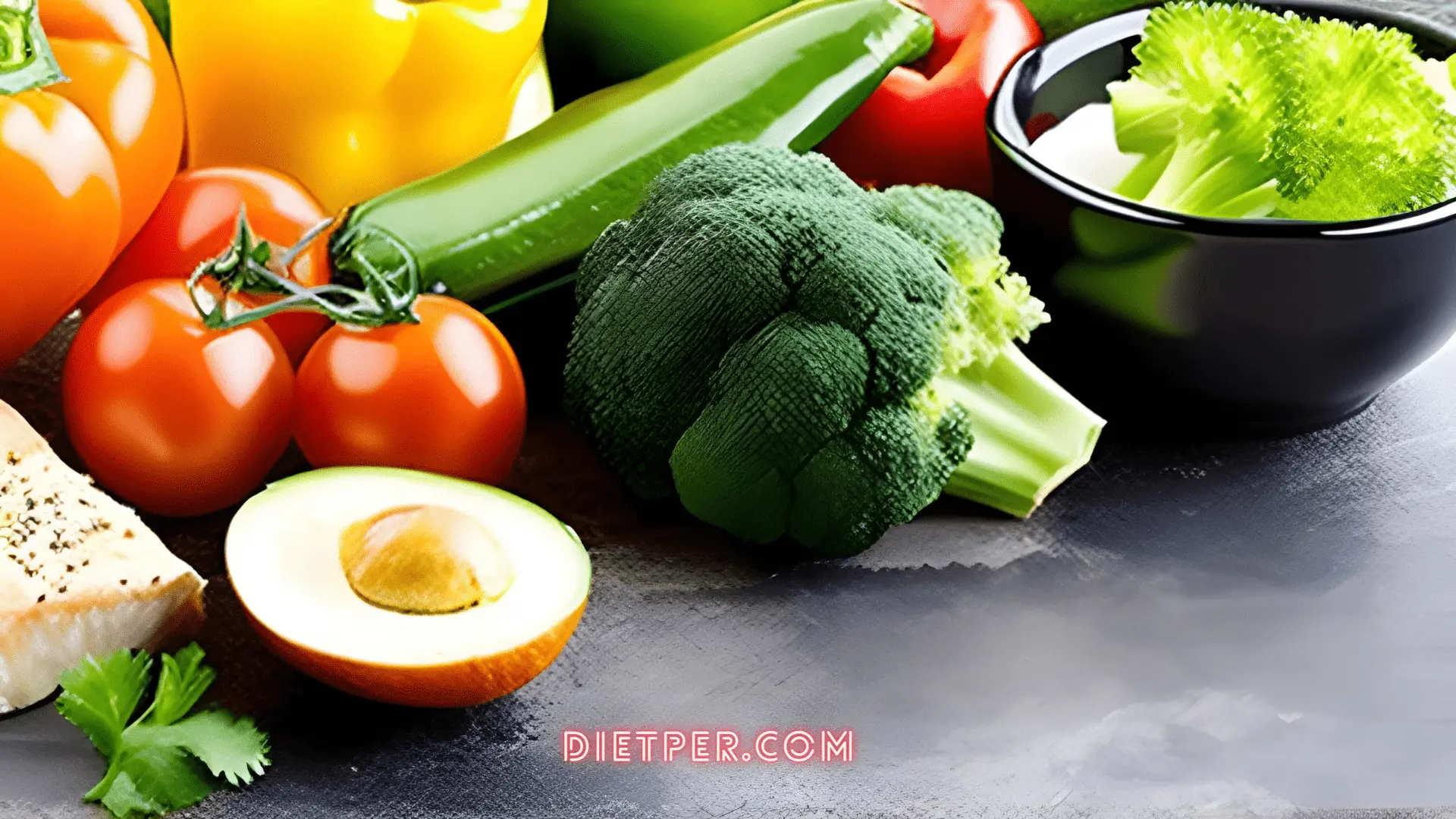
Final Words
Embracing a vegetarian lifestyle can be a transformative and enriching experience, benefiting your health and the planet. Healthline’s Vegetarian Diet Plan is the ultimate solution to the challenges you may encounter on your path to a healthy and fulfilling vegetarian journey. With expert guidance, delicious recipes, and a supportive community, you’ll be empowered to make positive changes, not just in your own life but the world around you. So, leap confidently, and let Healthline be your trusted companion in this exciting new chapter of your life.
Disclaimer
This blog post aims to empower you to make informed and health-conscious food choices. Your well-being is of paramount importance, and it’s essential to prioritize your health before embarking on any restrictive diets. Therefore, if you have any concerns, it is highly advisable to seek guidance from a healthcare professional or registered dietitian before making dietary changes.
